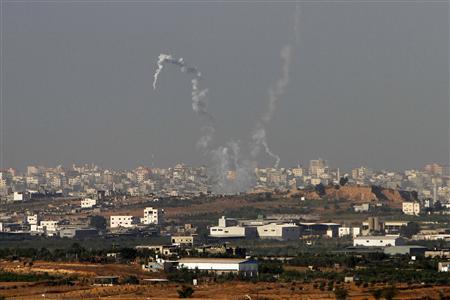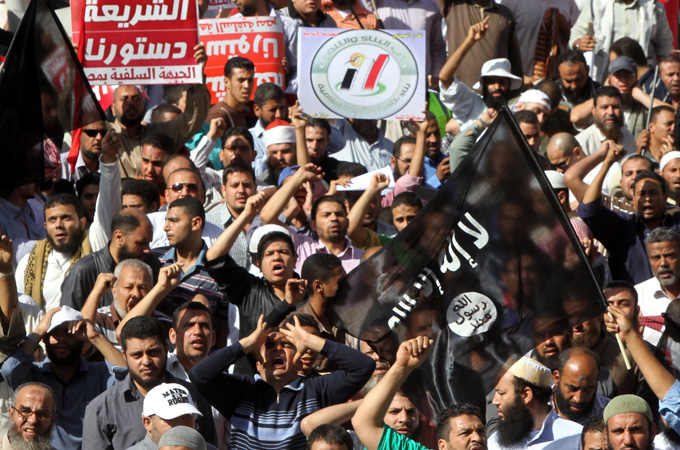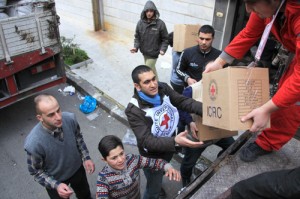By Emily Schneider
Impunity Watch Reporter, Middle East
JERUSALEM, Israel – Border clashes in Gaza are ongoing this week and Israel’s Prime Minister warned that Israel was “prepared to escalate” its response.

Six Palestinians have been killed and over twenty injured in the recent clashes between Israel and the Gaza strip. Four Israeli soldiers on an army patrol were also wounded. Tuesday, a 13-year-old Palestinian boy was killed in a clash between Palestinian and Israeli forces.
According to Israeli sources, over fifty rockets were fired from Gaza into or towards Israeli cities since last Saturday. Israeli schools near the border have been closed and people are being told to stay inside and be at the ready to proceed to bomb shelters if need be.
Hamas officials claim that Israel had fired at a funeral in Shijaia, near Gaza city, and five funeral attendees had died as a result. A suspected Islamic Jihadist was killed in a separate Israeli strike.
A statement by the Israeli Defense Force (IDF) said, “The Hamas terror organization is solely responsible for any terrorist activity emanating from the Gaza Strip.
“The IDF will not tolerate any attempt to harm Israeli civilians, and will operate against anyone who uses terror against the state of Israel,” it added.
Hamas militants are just as perturbed about the recent attacks on citizens. They issued their own statement via a text message to the AFP, saying, “Targeting civilians is a dangerous escalation that cannot be tolerated. The resistance has the full right to respond to the Israeli crimes.”
Interior Minister Eli Yishai on Tuesday called on the UN and the international community to take immediate action to stop rocket fire from Gaza, before Israel was forced to respond to the attacks to protect its citizens.
In a letter to UN Secretary-General Ban Ki-moon, Yishai said, “before Israel determines the timing and strength of its response, I request your immediate intervention to deter and stop the terrorist activity of the decision-makers in Gaza.
Israel’s Prime Minister is also trying to end the violence before it gets any worse. Benjamin Netanyahu said, “The world must realize that Israel won’t sit by idly in the face of attempts to attack us. We are prepared to escalate our actions.”
Netanyahu met with his security cabinet Tuesday to discuss options, after the Israeli Air Force hit three targets overnight. Targeted killings of Hamas commanders in Gaza is one of the options being considered.
The last large-scale operation by Israel in the Gaza strip was in the winter of 2008-2009. It is unclear whether a similar operation is being considered now, but if it is, it could strain already tense relations with neighboring Egypt.
For further information, please see:
Israel National News – Youth Take to Streets, ‘Don’t be Scared, Hit Gaza Terrorists’ – 13 Nov. 2012
JPost – Peres: Gaza Will Only Achieve Normalcy if Rockets Stop – 13 Nov. 2012
BBC – Gaza: Palestinians Killed and Israeli Soldiers Injured – 11 Nov. 2012
Rueters – Israel Says May Escalate as Hamas Joins Gaza Clashes – 11 Nov. 2012



